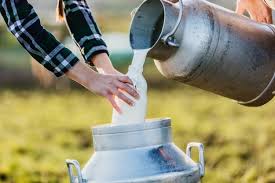
Breaking News
 What They Don't Tell You About Autoimmune Disorders
What They Don't Tell You About Autoimmune Disorders
 Jim Lovell, commander of NASA's Apollo 13 moon mission, dies at 97
Jim Lovell, commander of NASA's Apollo 13 moon mission, dies at 97
 Powerful new oral painkiller blocks signals without sedation or addiction
Powerful new oral painkiller blocks signals without sedation or addiction
 Tesla Gets a Texas Rideshare Network License
Tesla Gets a Texas Rideshare Network License
Top Tech News
 3D printing set to slash nuclear plant build times & costs
3D printing set to slash nuclear plant build times & costs
 You can design the wheels for NASA's next moon vehicle with the 'Rock and Roll Challenge
You can design the wheels for NASA's next moon vehicle with the 'Rock and Roll Challenge
 'Robot skin' beats human reflexes, transforms grip with fabric-powered touch
'Robot skin' beats human reflexes, transforms grip with fabric-powered touch
 World's first nuclear fusion plant being built in US to power Microsoft data centers
World's first nuclear fusion plant being built in US to power Microsoft data centers
 The mitochondria are more than just the "powerhouse of the cell" – they initiate immune...
The mitochondria are more than just the "powerhouse of the cell" – they initiate immune...
 Historic Aviation Engine Advance to Unlock Hypersonic Mach 10 Planes
Historic Aviation Engine Advance to Unlock Hypersonic Mach 10 Planes
 OpenAI CEO Sam Altman Pitches Eyeball-Scanning World ID to Bankers
OpenAI CEO Sam Altman Pitches Eyeball-Scanning World ID to Bankers
 New 3D-printed titanium alloy is stronger and cheaper than ever before
New 3D-printed titanium alloy is stronger and cheaper than ever before
 What is Unitree's new $6,000 humanoid robot good for?
What is Unitree's new $6,000 humanoid robot good for?
 "No CGI, No AI, Pure Engineering": Watch Raw Footage Of 'Star Wars'-Style Speeder
"No CGI, No AI, Pure Engineering": Watch Raw Footage Of 'Star Wars'-Style Speeder
How the 1987 ban came about in America and what it means to your food security today.

An age-old food
In the opening scenes of the famous musical Fiddler on The Roof, our hero–Tevye–arranges his milk cart.
As the overture plays, drawing us into the scene and his inner musings on "Tradition!" he and his horse drive through the village serving his community with the milk from his cows and the cheeses he makes from that milk.
He is a farmer. A milkman. He is central to his community.
He dips his ladle into his milk can and pours the liquid into the waiting pitchers of the women. The activity of feeding his community is a small detail almost lost in the background of the plot–an illustration of a challenging time in 1905 Imperial Russia. It is lost in the background because of its normalcy.



